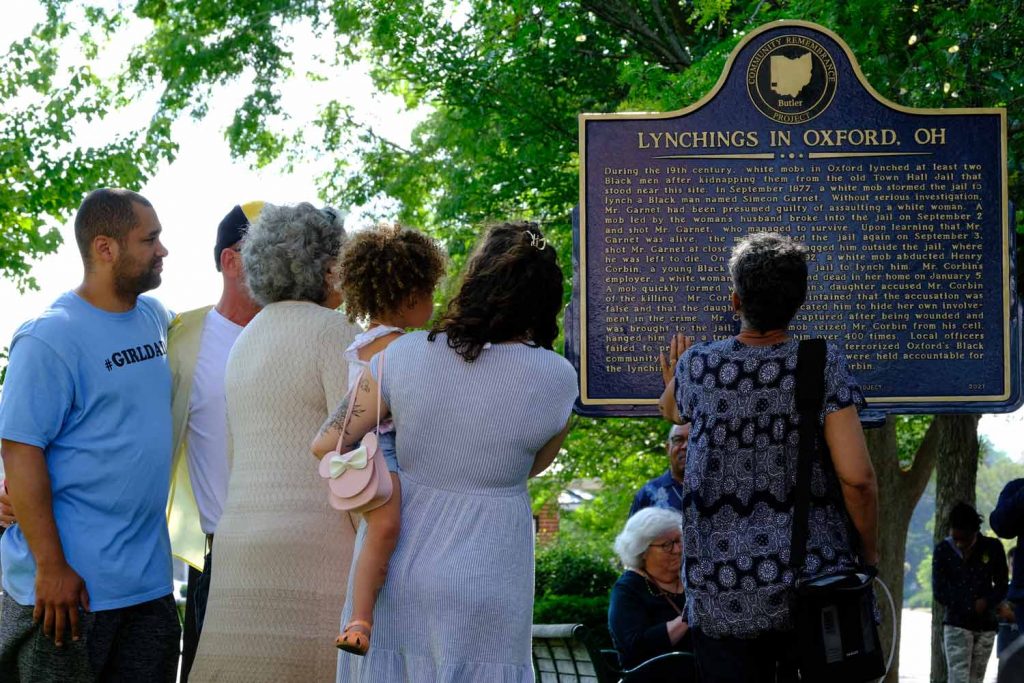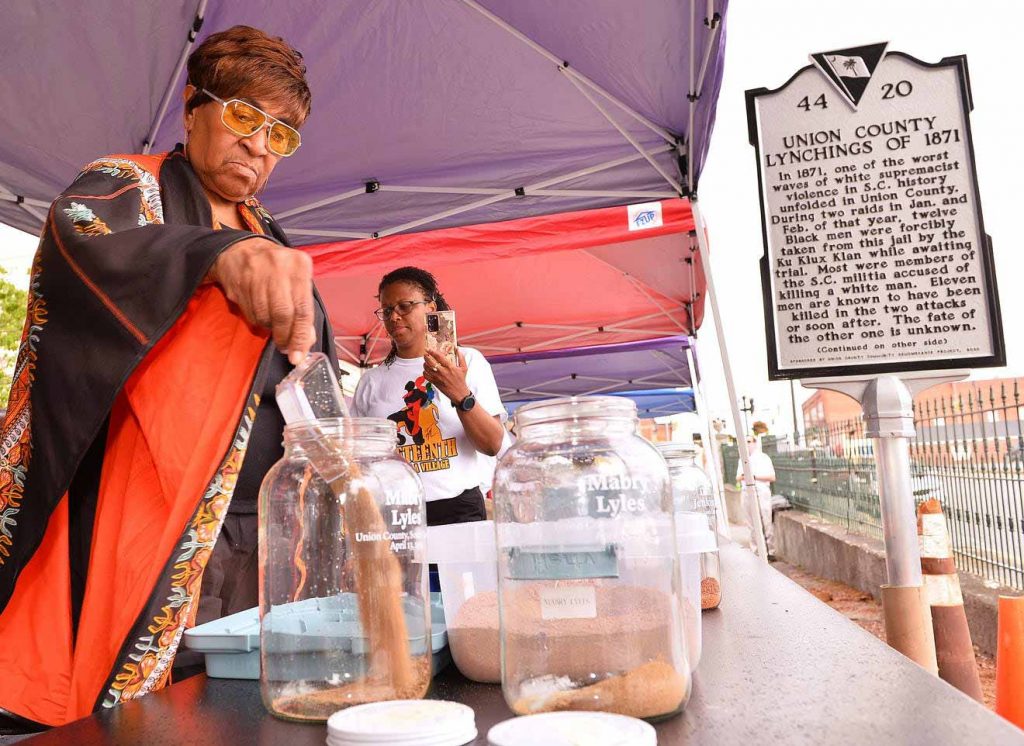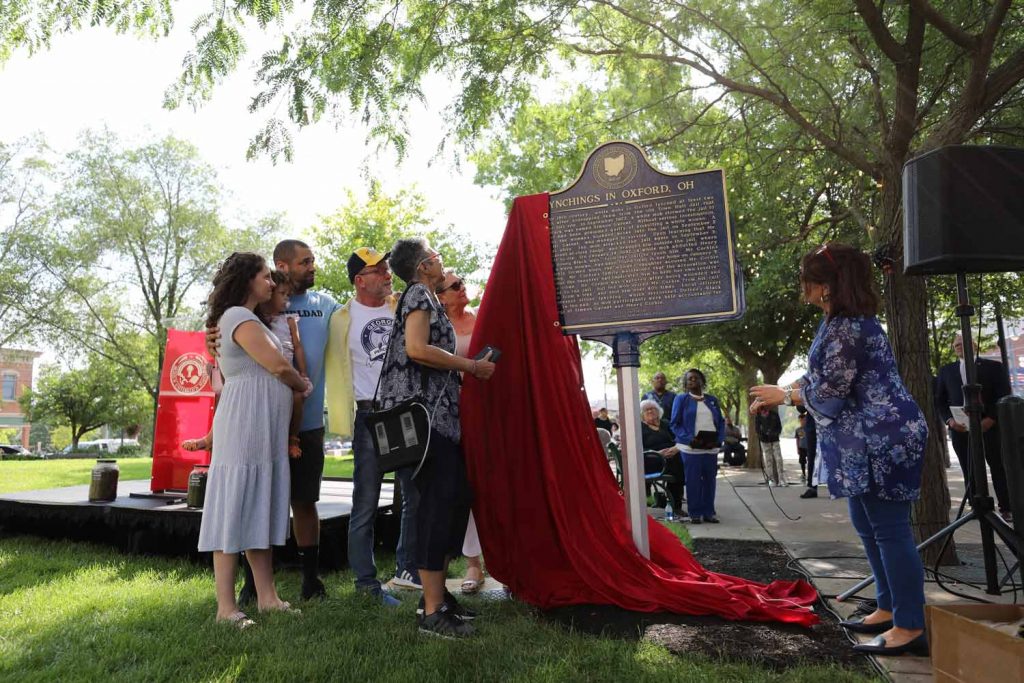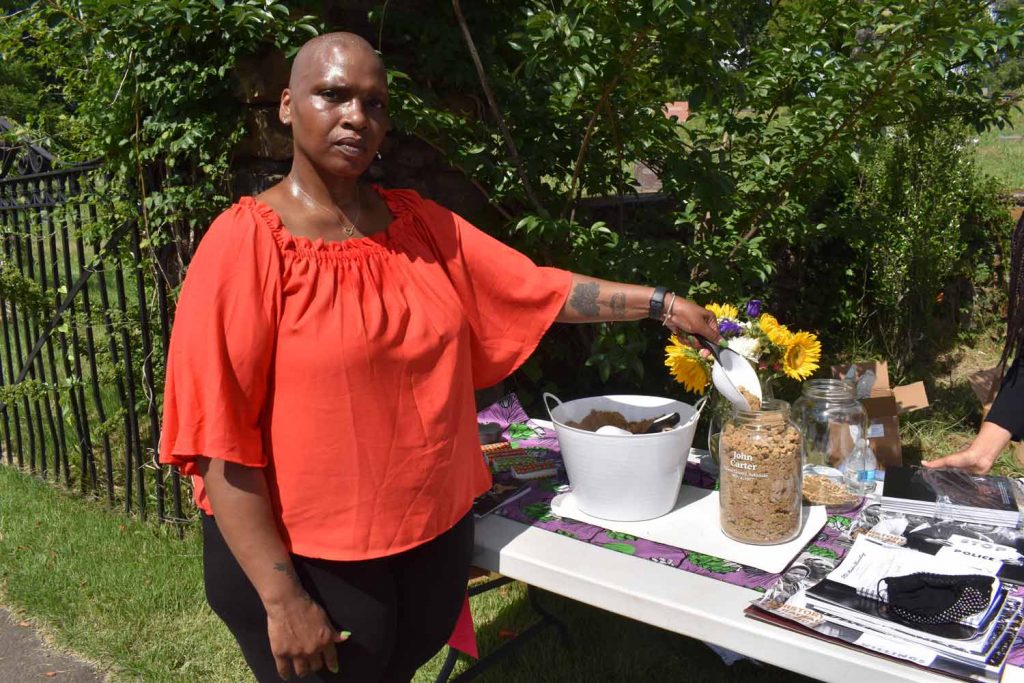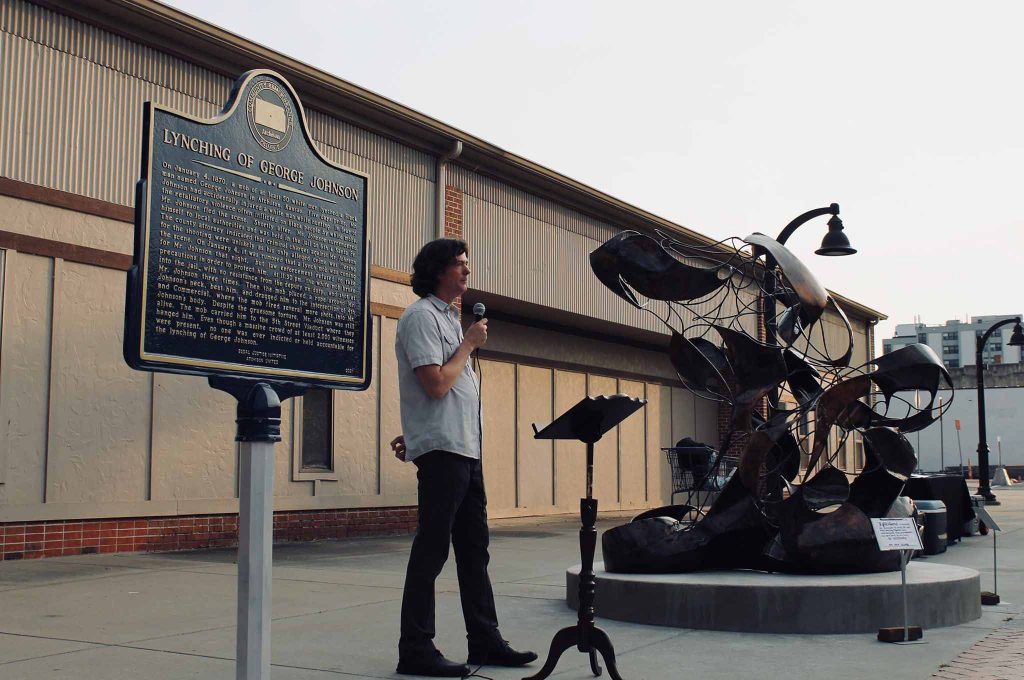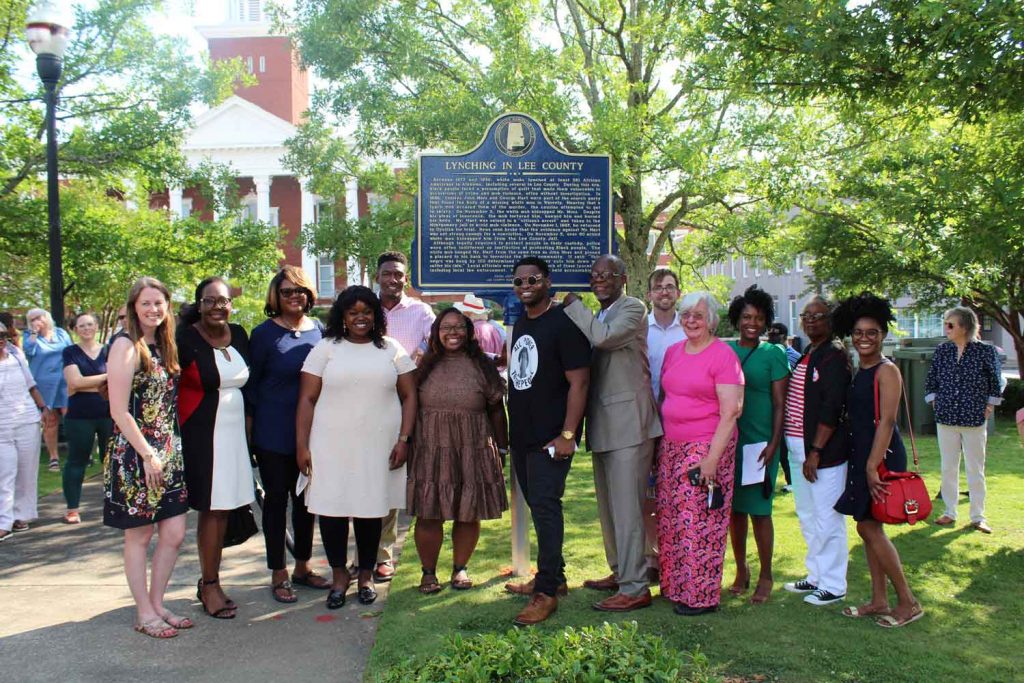As part of EJI’s Community Remembrance Project, community members across the country partnered with EJI throughout the month of June to acknowledge and document our history of racial terror by unveiling narrative historical markers. In seven communities from Oregon to South Carolina, historical markers were dedicated to add to the landscape of truth-telling in this nation.
Lee County, Alabama
On Saturday, June 12, hundreds of people joined the Lee County Remembrance Project for a ceremony to celebrate the unveiling of a historical marker in historic downtown Opelika’s Courthouse Square. The marker memorializes the lynching of four Black people in Lee County—John Moss, George Hart, Charles Humphries, and Samuel Harris.
The ceremony took place at First United Methodist Church and included remarks from coalition members, community members, the local NAACP chapter, and local officials. To conclude the program, attendees walked to the square, where coalition members Ashley Brown, Olivia Nichols, Patricia Butts, Jean Madden, and Harriette Huggins unveiled the marker.
The Lee County Remembrance Project partnered with EJI to host a Racial Justice Essay Contest open to all public high school students in the county. Students attending public high school in Lee County were invited to compete for prizes totaling $6,000.
Little Rock, Pulaski County, Arkansas
On Sunday, June 13, the Pulaski County Community Remembrance Project, along with the Arkansas Peace and Justice Memorial Movement, Just Communities of Arkansas, and the Little Rock Central High School National Historic Site, gathered more than 50 people at Haven Rest Cemetery in Little Rock to memorialize the 1927 lynching of John Carter. In addition to the marker ceremony, community members collected soil in remembrance of Mr. Carter. The soil will be exhibited in Montgomery at the Legacy Museum and in Little Rock at the Little Rock Central High School National Historic Site.
Omaha, Douglas County, Nebraska
On Friday, June 18, more than 500 community members convened in person and virtually to dedicate a historical marker at the Douglas County Courthouse in remembrance of the 1919 lynching of Will Brown. Hosted by the Omaha Community Council for Racial Justice and Reconciliation, the marker ceremony launched a weekend of Juneteenth activities organized by the Malcolm X Memorial Foundation.
Many city and county officials, including Omaha Mayor Jean Stothert, were in attendance as several Douglas County community organizations, faith institutions, activists, and leaders collectively worked to achieve this moment. Coalition members including the city’s Director of Human Rights & Relations Dr. Franklin Thompson, Omaha NAACP President Vickie Young, former Nebraska state senator Brenda Council, and Douglas County Commissioner Chris Rodgers, unveiled the marker. The council also partnered with EJI to host a local Racial Justice Essay Contest and awarded more than $8,000 in scholarships and prizes to local high school students.
Atchison County, Kansas
On Saturday, June 19, Atchison United hosted a historical marker dedication ceremony in Atchison, Kansas, in the community’s new sculpture courtyard. The local community remembrance coalition worked with several community leaders and organizations, including Atchison Juneteenth and Atchison Art Association. The historical marker documents the 1870 racial terror lynching of a Black man named George Johnson. To encourage the community to engage in a meaningful way with this history, a metal art sculpture was also installed next to the marker.
Union County, South Carolina
On Saturday, June 19, the Union County Community Remembrance Project hosted the town’s Juneteenth Remembrance and Celebration event. As part of the event, they hosted a community remembrance ceremony that included unveiling three historical markers that document the long history of racial terror violence and lynching in the county and invited community members to participate in a community soil collection ceremony.
Coos County, Oregon
More than 500 people from throughout Oregon attended in person or virtually the community historical marker dedication ceremony in remembrance of Alonzo Tucker, who was lynched by a white mob in Coos County in 1902. The ceremony was held at the Coos History Museum in conjunction with the Oregon Remembrance Project as part of the inaugural Juneteenth Reflection, Reparation, Celebration event. This coalition also hosted a soil collection ceremony for Alonzo Tucker in February 2020 and created an exhibit at the Coos History Museum that attendees were able to view after the marker ceremony.
Butler County, Ohio
The Truth and Justice Project Coalition based in Oxford, Ohio, partnered with EJI to erect a historical marker memorializing the lynchings of two Black men—Simeon Garnet, who was lynched in 1877, and Henry Corbin, who was lynched in 1892. On June 21, a community gathering was held that included descendants of Mr. Garnet and Mr. Corbin, Oxford city officials, Miami University leaders and educators, and a diverse group of guests, who celebrated the installation of the marker in the Martin Luther King Jr. Park in downtown Oxford. The marker dedication also served as the inaugural event for the 10th Annual National Civil Rights Conference being hosted at Miami University.
Community Remembrance Project
The Community Remembrance Project is part of our campaign to recognize the victims of lynching by collecting soil from lynching sites, erecting historical markers, and developing the National Memorial for Peace and Justice, which acknowledges the horrors of racial injustice.
As part of our effort to help towns, cities, and states confront and recover from tragic histories of racial violence and terrorism, EJI is joining with communities to install historical markers in communities where the history of lynching is documented. The narrative historical markers in Fayetteville are among dozens of narrative markers sponsored by EJI to date.
We believe that understanding the era of racial terror is critical if we are to confront its legacies in the challenges that we currently face from mass incarceration, excessive punishment, police violence, and the presumption of guilt and dangerousness that burdens people of color today.
